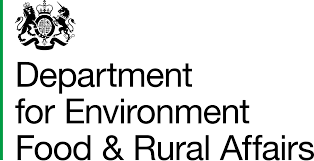HISTORIC PRESS RELEASE : Chancellor Gordon Brown Spells Out Reforms which could Cancel Two-Thirds of the Poorest Countries´ Official Debts [June 1999]
The press release issued by HM Treasury on 17 June 1999.
Following his Internet link-up with Elenata Kasanga from Zambia the Chancellor Gordon Brown said:
“We set ourselves the objective of securing reforms which will deliver faster, deeper and wider debt relief.
“The debt package to be agreed this weekend will deliver quickly to more of the poorest countries a lasting exit from their unsustainable debt burdens and bridge the gap between what the HIPC initiative promised and its current reality.
“The package will:
-
mean that 38 of the world’s poorest countries could get up to $50 billion of debt reduction under the enhanced HIPC initiative – the target we set ourselves. It will help an extra 7 countries – Benin, Central African Republic (CAR), Ghana, Honduras, Laos, Senegal and Togo – qualify for HIPC relief;
- on top of that, debt relief will offer another $30 billion; and cancellation of overseas development debt another $20 billion;
-
a result equivalent, in total, to cancellation of two-thirds of the poorest HIPC countries’ official debts.
“Specifically, it will
-
ensure that the full financing benefit of debt relief would be felt by countries after a maximum of 3 years rather than after the current maximum of 6 years; and
-
deliver more debt relief because the debt sustainability criteria have been substantially reduced. We have lowered the sustainability criteria: the debt -exports ratio and the fiscal criterion. And we have changed the criteria of the calculation to increase the relief and give countries the upside of economic growth after debt relief rather than reducing debt relief to reflect growth.
“Equally important, the link between debt relief and poverty reduction will be strengthened. A new relationship will be formed between the Bretton Woods institutions and the poorest countries and the civil society in those countries. The World Bank and the International Monetary Fund will be asked to listen to poor countries, to protect investment in health and education and to strengthen the link between their programmes and the international target to halve world poverty by 2015. Developing this framework will be the challenge between now and September.
“We greatly welcome the contribution the churches and non-governmental organisations have already made to securing public support for reform, and we support their desire to pursue the issues further. The package is a good one – but it is not the ceiling of our ambitions.”


